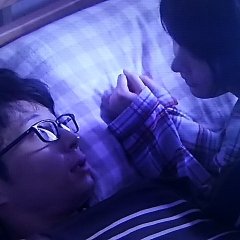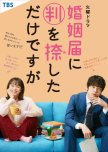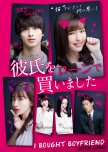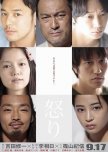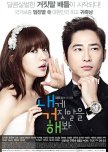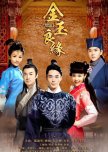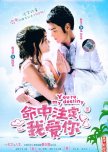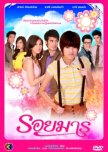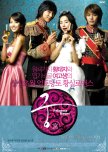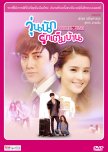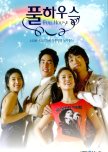 The Kawaii Factor in J-Dramas: Female Leads
The Kawaii Factor in J-Dramas: Female Leads Moriyama Mikuri, 25 ans, est au chômage malgré ses diplômes. Grâce à son père, elle parvient quand même à travailler comme femme de ménage pour un certain Tsuzaki Hiramasa. Celui-ci lui propose finalement une sorte de mariage arrangé dans le cadre duquel il "l'embaucherait" comme femme. Mikuri se retrouve donc à effectuer toutes les tâches ménagères chez Tsuzaki mais le pseudo-couple ne peut se permettre de dévoiler sa relation particulière à son entourage. (Source: Umaro de Nautiljon) Modifier la traduction
- Français
- Русский
- Italiano
- Español
- Titre original: 逃げるは恥だが役に立つ
- Aussi connu sous le nom de: We Married as a Job , Running away is shameful, but helpful. , The Full-Time Wife Escapist , Nigehaji
- Scénariste: Nogi Akiko
- Réalisateur: Kaneko Fuminori
- Genres: Comédie, Romance, Vie quotidienne
Distribution et équipes
- Aragaki Yui Rôle principal
- Hoshino Gen Rôle principal
- Ishida YurikoTsuchiya Yuri [tia de Mikuri]Rôle Secondaire
- Otani RyoheiKazami Ryota [colega de Hiramasa]Rôle Secondaire
- Furuta ArataNumata Yoritsuna [colega de Hiramasa]Rôle Secondaire
- Fujii TakashiHino Hideshi [colega de Hiramasa]Rôle Secondaire
Critiques

Right away, I’ll say that this is not the goofy romcom I was expecting it to be. Although there are plenty of laugh-out-loud moments and lighthearted comedic scenes, this drama gets heavy at some points and definitely moves into the melodrama category occasionally. But what made this drama so amazing is that it continually challenged my expectations of the comedy genre and the difficult emotions never felt unnatural. I laughed and I cried many times and found myself re-watching scenes again and again. The dialogue was fascinating, very quotable, and definitely gave me a new outlook on love and relationships.
It's the cast and characters that really make this drama special. Not only is the acting superb, but the individual characters are very complex and unique. Mikuri, the drama's heroine, overanalyzes and missteps often, can rarely reign in her colourful imagination, and is bold as brass, but that’s what makes her endearing and I loved watching her grow. Even the most minor characters shine in this drama! Each character is so well developed in their personalities and desires that you can’t help but root for everyone to find happiness!
Definitely don’t miss this beautiful drama!
Cet avis était-il utile?

"We Married for Job" paints some of the most prominent recent Japanese cultural phenomena including soushokukeidanshi (herbivore men) and bankon (getting married later in life) as well as older examples such as the role of women and men, the value/happiness of housewives, perception of homosexuality, oyakoukou (filial piety), work dynamics, collectivism and the stress of shuushoku katsudou ("job hunting") among others.
The most striking thing as a student would most definitely be "experiencing" those phenomena. No matter how much one reads or researches, the 'click' moment didn't come to me until watching this drama. Until now, herbivore men had been a mere concept - a niche group of strange men no-one knew about. After Hoshino Gen's endearing performance, however, I felt myself relate and connect to a lifestyle I always found myself unable to picture. More than anything, it was a refreshing take on Japanese society - the good, the bad and the ugly - that doesn't ever really get shown on television in a non-condescending way.
'Nigeru wa haji da ga yaku ni tatsu' not only depicts Japanese society freshly and without disdain, but challenges the everyday thoughts, relationship dynamics and ideals of the Japanese. A moment that particularly stood out for me was in episode one, when the character of Moriyama Mikuri contemplates the worth of housework as an occupation, and how her changing opinion on the monetary and meaningful value of housework changes in further episodes. Another particularly notable example for me was the character of Tsuzaki Hiramasa's ideas about homosexuals and how they change in a brief conversation. Most of all, the drama in essence, had the purpose of challenging traditional and changing ideas of "love". Marriage without love, love with someone you can't marry, the lines and blurs between relationships and the beautiful sentiment of loving ourselves, and allowing ourselves to love others.
As for the drama technically speaking:
CAST
Lovely cast fully of well-known and lesser-known professionals, who provided a diverse range of looks and personality to the show. I had high hopes for Hoshino Gen, and he really delivered in my opinion. Aragaki Yui is just as lovely as ever and never fails to impress. The side characters were also extremely impressive, though I won't delve into it.
SOUNDTRACK
I won't even touch Koi (the ending title, Love) because I think it speaks for itself. The rest of the soundtrack did however put me off a little. It was quite typical of a Japanese drama, which was relatively welcome, but the repetitious backtracks and instrumentals always turn me off a bit. It was no means bad though, and well used -- never a classic "where's the music??" realisation moment.
CINEMATOGRAPHY
Loved it. I'm no expert, but the TV-themed cuts were absolutely hilarious and really well shot as well. You really do notice a difference between drama and the other TV styles it depicts. I also thought the "hanky-panky" (as the subtitlers opted for) was interesting and rather cute. Nothing ever sore to the eye.
I really do love this drama - it is definitely one of the best I have seen objectively. I have my own tastes and favourites, but in terms of quality and just likeability as a drama, I really can't fault it. Anyone who is interested in watching it - try reading a little deeper and you won't be disappointed.
Cet avis était-il utile?










